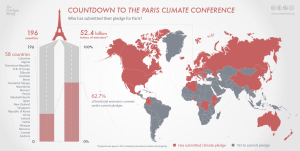7 September 2015, Climate News Network, Climate talks are stuck in the slow lane to Paris. Lack of progress at the close of “unbearably tardy” negotiations in Bonn undermines hopes of a meaningful deal being agreed at this year’s crucial UN climate summit. The latest round of climate talks in the German city of Bonnhave ended with a failure to deliver common grounds for the negotiations at the UN climate summit in Paris at the end of this year. The Paris talks, involving all UN member states, are meant to deliver a draft that could lead to a new world climate treaty to replace the expired Kyoto Protocol. But experts now fear that there will not be enough time left to see a major breakthrough. Jan Kowalzig, climate change policy adviser at Oxfam, described last week’s negotiations in Bonn as “unbearably tardy”. He said: “If the negotiators keep up that slow pace, the ministers at the UN summit will get an unfinished paper that they will have to resolve with no time for reflection. The outcome will then most likely be an extremely weak new treaty that will not save the world from climate change.” Read More here
Category Archives: Global Action Inaction
7 September 2015, The Carbon Brief, Paris 2015: Tracking country climate pledges. 31 March marked the loose deadline for countries to submit their pledges to the UN on how far they intend to reduce their greenhouse gas emissions. These promises, known as “intended nationally determined contributions”, or INDCs, will determine the success of the deal that the UN hopes to sign off in Paris in December this year. While only five countries plus the EU made the deadline, more than a hundred others are expected to filter in throughout the coming eight months. Carbon Brief is tracking the pledges made by each country. We’ll update this post as each INDC comes in. To find out exactly what an INDC is and why it matters, read our INDC explainer. Read More here
25 August 2015, BBC, Carbon credits undercut climate change actions says report. The vast majority of carbon credits generated by Russia and Ukraine did not represent cuts in emissions, according to a new study. The authors say that offsets created under a UN scheme “significantly undermined” efforts to tackle climate change. The credits may have increased emissions by 600 million tonnes. In some projects, chemicals known to warm the climate were created and then destroyed to claim cash. As a result of political horse trading at UN negotiations on climate change, countries like Russia and the Ukraine were allowed to create carbon credits from activities like curbing coal waste fires, or restricting gas emissions from petroleum production. Under the UN scheme, called Joint Implementation, they then were able to sell those credits to the European Union’s carbon market. Companies bought the offsets rather than making their own more expensive, emissions cuts. But this study, from the Stockholm Environment Institute, says the vast majority of Russian and Ukrainian credits were in fact, “hot air” – no actual emissions were reduced. Read More here
21 August 015, Climate News Network, China’s carbon count is not as high as feared. The use of poor-quality coal in Chinese power plants means that the carbon dioxide emissions of the world’s biggest polluter are 10% less than previously thought. Calculations on how much carbon dioxide China produces have been wrong for more than 10 years because the official bodies that calculate it have assumed the country’s power stations burn high-quality coal. In fact, the world’s biggest polluter uses coal with a lower carbon content than power stations in Europe and the US, and so produces less carbon dioxide per tonne − around 14% less according to experts from 18 research institutions. Getting the total quantities of CO2 emitted by each country correct is crucial if the world is going to reach agreement on tackling dangerous climate change at the UN conference in Parisin December. One of the stumbling blocks to agreements in the past has been politicians’ need to have a fair system of sharing the burden of cuts.Calculating how much pollution each country produces has been largely based on the quantities of fossil fuels burned in electricity and heat production and in motor vehicles. This has not taken into account the fact that the amount of carbon in coal and oil varies according to its quality, and so an average figure has been used, which turns out to be unfair in the case of China. Read More here

